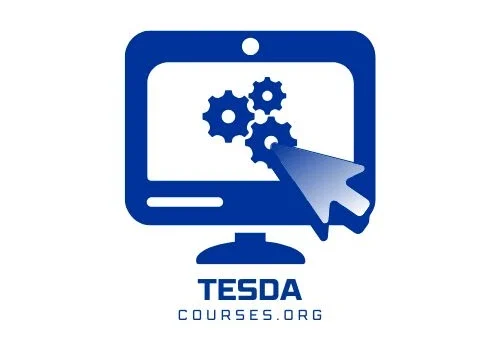Building Skills for Society: A Guide to NC II and NC III Qualifications in Community Services
Are you looking for Building Skills for Society? The technical and vocational education and training (TVET) sector is a powerful engine for social and community development, providing accessible pathways to employment and entrepreneurship.
Qualifications like Beauty Care (Nail Care) Services NC II, Domestic Work NC II, and Bookkeeping NC III are more than just certifications; they are tools for economic empowerment, professionalizing vital service industries, and building a skilled workforce.
This comprehensive guide explores these three distinct but equally valuable qualifications, detailing their curricula, career outcomes, and the essential roles they play in the economy and community.
Details About Building Skills for Society:
1. Beauty Care Services (Nail Care) NC II: The Art of Professional Nail Technology
The Beauty Care Services (Nail Care) NC II qualification is designed for individuals passionate about beauty and wellness, focusing specifically on the mastery of nail care services. This program equips students with the technical skills and professional knowledge to thrive as certified nail technicians.
Core Competencies and Learning Outcomes:
A candidate for this national certificate must demonstrate competence in all core units, which include:
- Performing Manicure and Pedicure: Mastering the classic techniques of nail shaping, cuticle care, and basic polish application. This is the foundation of all nail services.
- Performing Hand Spa: Going beyond a basic manicure to provide a therapeutic experience that includes soaking, exfoliation, massage, and moisturizing treatments to rejuvenate the hands.
- Performing Foot Spa: Providing specialized care for the feet, including soaking, callus removal, massage, and masking, which is essential for foot health and relaxation.
Assessment and Career Pathways:
- National Certification: To attain the National Certificate, a candidate must undergo a competency assessment at an accredited Assessment Center, proving their skills in all core units.
- Job Roles: A person certified with Beauty Care Services (Nail Care) NC II is competent to be employed as a:
- Manicurist/Pedicurist in salons, spas, and resorts.
- Nail Technician or Nail Artist, potentially specializing in advanced nail art, extensions, and enhancements.
- Entrepreneur, capable of starting their own home-based nail salon or mobile nail service business.
This qualification professionalizes a creative skill set, ensuring practitioners meet health and safety standards while providing high-quality service.
2. Domestic Work NC II: Professionalizing Household Management
The Domestic Work NC II qualification transforms domestic work from an informal trade into a recognized profession. This self-paced course instills the knowledge, skills, and attitudes (KSAs) required for efficient, safe, and respectful household management.
Core Modules and Curriculum:
The qualification is structured into five key learning modules:
- Introduction to Domestic Service: This foundational module covers the role of a domestic worker, professional work habits, occupational health and safety procedures, building effective client relationships, and managing one’s own performance.
- Cleaning Rooms and Kitchen: Trainees learn systematic procedures for cleaning all household areas. This includes using personal protective equipment (PPE), cleaning ceilings, walls, and floors, making beds, washing dishes, cleaning kitchen appliances, and sanitizing surfaces.
- Washing and Ironing Clothes and Linens: This module covers the end-to-end process of laundry management, including sorting, washing, drying, ironing, and organizing clothes and linens according to fabric types and household preferences.
- Preparing Hot and Cold Meals: Students learn essential culinary skills, including identifying ingredients, using common cooking methods for various foods (meat, poultry, vegetables), and preparing appetizers, salads, sandwiches, and desserts. It also covers food presentation and the safe storage of leftovers and ingredients.
- Providing Food and Beverage Service: This module focuses on the service aspect, teaching how to prepare the dining area, set tables formally and informally, serve food and beverages, and clear tables after meals.
Impact and Career Opportunities:
This qualification empowers domestic workers with standardized skills, leading to:
- Improved employment prospects and recognition as skilled professionals.
- Higher standards of safety and hygiene in households.
- Better client relationships through defined responsibilities and professional conduct.
- Career roles such as Professional Housekeeper, Domestic Assistant, or Private Household Manager.
3. Bookkeeping NC III: The Backbone of Business Finance
Bookkeeping NC III is a critical qualification for anyone seeking a stable, in-demand career in business and finance. Bookkeepers are essential for maintaining the financial health of businesses of all sizes, from small startups to large corporations.
Core Competencies and Curriculum:
The qualification is built on a structured progression of accounting competencies:
- Introduction to Bookkeeping: This module establishes the foundation, covering the role of a bookkeeper, effective workplace practices, and the fundamental principles of accounting.
- Journalizing Transactions: Students learn the critical skill of logging business transactions into an accounting journal, the first step in the accounting cycle. This includes understanding debits, credits, and source documents.
- Posting Transactions: This module covers transferring information from journals to a general ledger, both manually and digitally, creating a centralized record of all financial accounts.
- Preparing Trial Balance: Trainees learn how to list all general ledger accounts and summarize their debits and credits to prepare a trial balance, which is used to check the mathematical accuracy of the books.
- Preparing Financial Reports: This advanced skill involves using the trial balance to manually prepare key financial statements, including the Income Statement (Profit & Loss) and the Balance Sheet, which communicate a company’s financial performance and position.
- Reviewing Internal Control System: This high-level module covers how to review and assess a firm’s internal control procedures to ensure compliance, prevent errors and fraud, and safeguard assets.
Career Pathways:
Certified Bookkeepers NC III are qualified for roles such as:
- Bookkeeper or Accounts Assistant
- Accounting Clerk
- Finance Officer
- Auditing Clerk
This qualification provides a direct pathway to roles in almost every industry and is a stepping stone to higher accounting qualifications.
Conclusion: Investing in Skills for a Stronger Community
The Beauty Care (Nail Care) NC II, Domestic Work NC II, and Bookkeeping NC III qualifications exemplify how targeted skills training directly contributes to social and economic development. They provide:
- Economic Mobility: Offering accessible training programs that lead to viable employment and entrepreneurship.
- Professional Standards: Raising the bar for service quality, safety, and ethics in their respective industries.
- Community Support: Creating a workforce of skilled professionals who support the daily functioning of homes, businesses, and personal care services.
By investing in these qualifications, individuals invest in their futures, and society gains a stronger, more skilled, and more professional community of workers.







